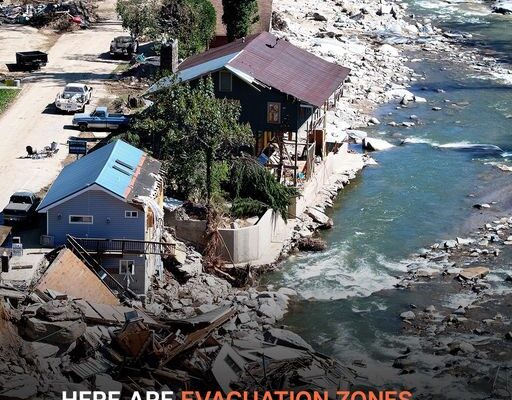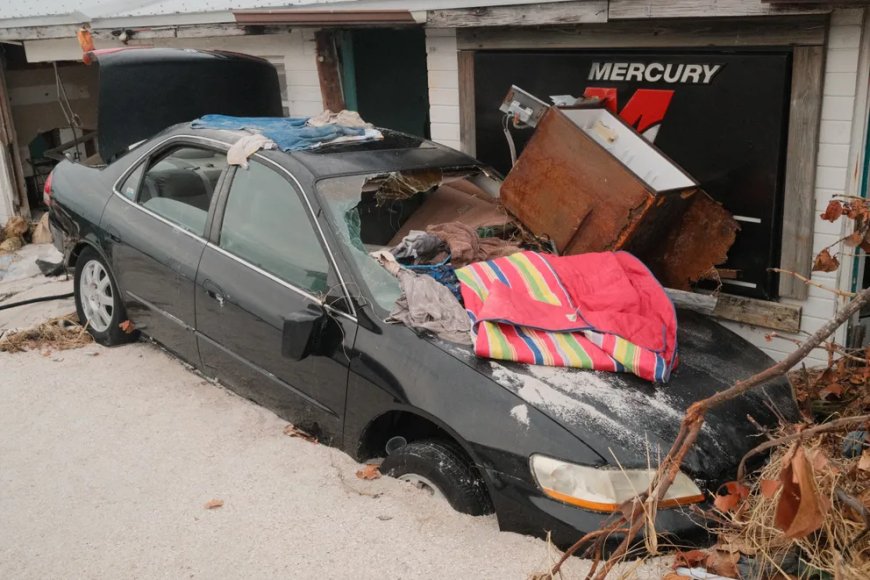
As Hurricane Milton barrels toward Florida’s Gulf Coast, residents are bracing for what experts warn could be the most destructive storm in over a century. With massive storm surges and devastating winds forecasted, the region is on high alert as evacuation orders are being issued.
Hurricane Milton is quickly gaining strength, and experts are warning that it could be one of the most dangerous storms in recent history. With many areas already vulnerable after recent storms, the threat of widespread damage and flooding is greater than ever.
Evacuation orders are already in place, with officials urging residents to take the storm seriously and prepare for potentially life-threatening conditions. As the storm approaches, the focus is on safety, and the next few days will be crucial for those in its path.
Hurricane Milton: A Record-Breaking Storm
Hurricane Milton has escalated to a Category 5 storm, making it one of the most dangerous on the Saffir-Simpson scale. With winds exceeding 157 mph, this storm has the potential to cause catastrophic destruction along its path.
The National Hurricane Center has issued dire warnings about the impact, stating that framed homes could be destroyed, trees and power poles will fall, and some areas may be uninhabitable for weeks or even months. They elaborated, “A high percentage of framed homes will be destroyed, with total roof failure and wall collapse.”
The storm surge is projected to be especially devastating, with water levels rising as high as 12 feet in some locations. Meteorologists believe this could be the worst surge the Tampa Bay area has seen in nearly 100 years. Just weeks ago, Hurricane Helene caused flooding with a water level increase of up to 8 feet.
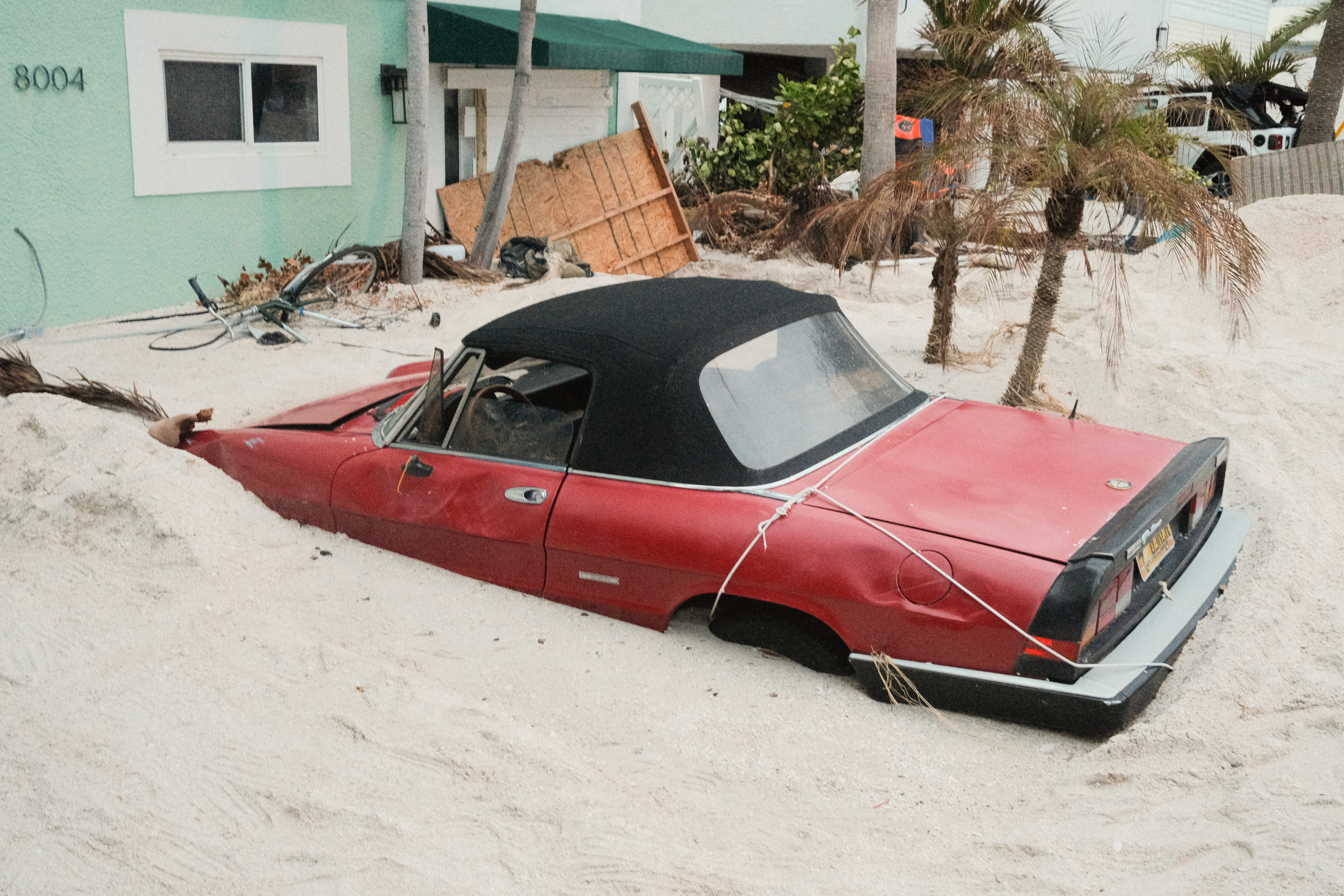
A damaged vehicle stuck in sand swept up by Hurricane Helene ahead of Hurricane Milton’s landfall in Treasure Island, Florida, on October 7, 2024 | Source: Getty Images
However, Milton is expected to bring even more intense flooding. Although Milton is forecast to weaken to a Category 3 by the time it reaches the Florida coast, forecasters stress that it will still bring severe damage. With winds up to 129 mph, even strong homes could suffer significant roof damage, and trees are expected to be uprooted.
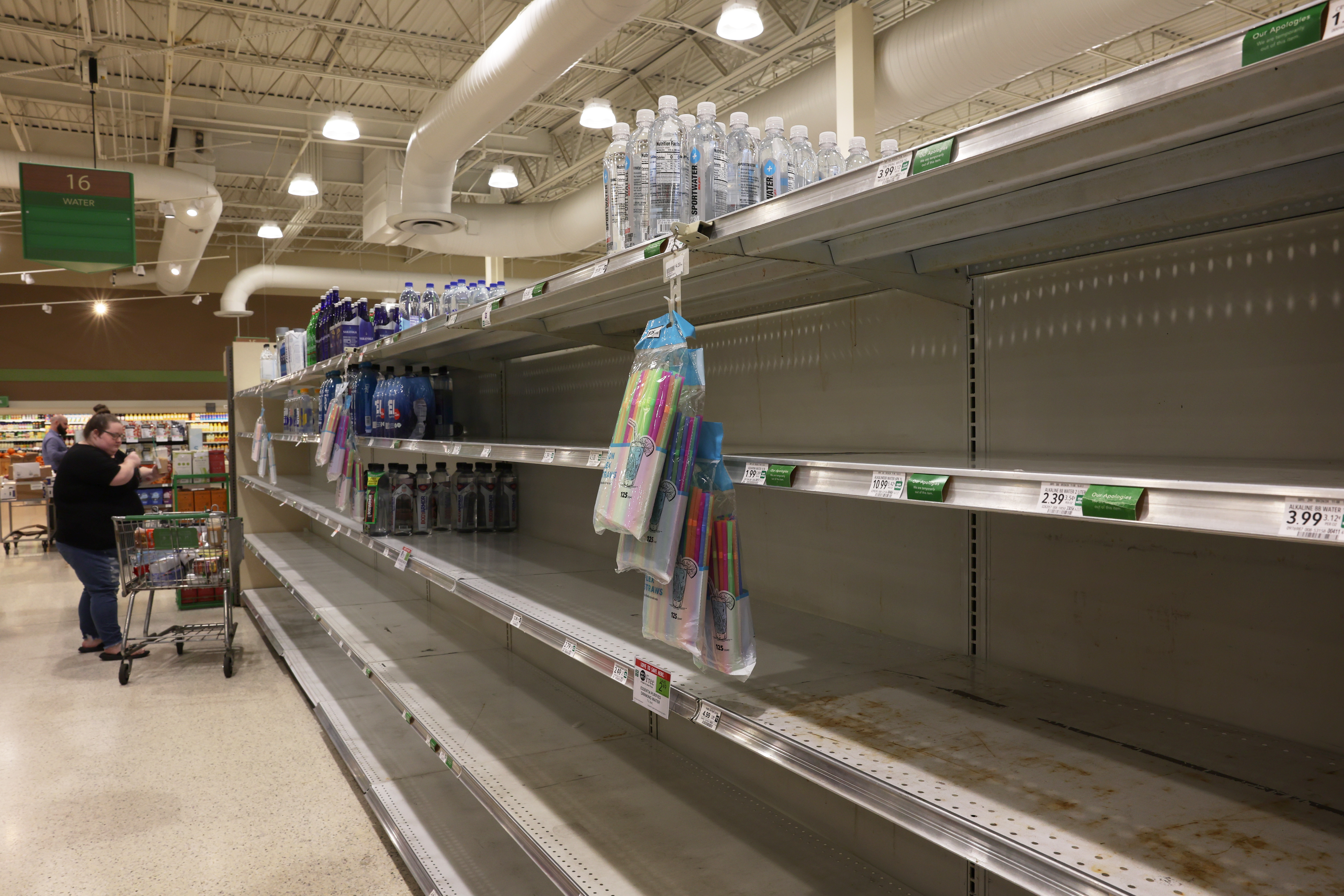
Shelves at a grocery store are empty as Hurricane Milton churns in the Gulf of Mexico , on October 7, 2024 | Source: Getty Images
Many are comparing Milton to previous hurricanes like Irma (2017) and Betsy (1965). However, what makes this storm particularly dangerous is the debris left behind by Hurricane Helene, which could amplify the destruction Milton may bring to the region.
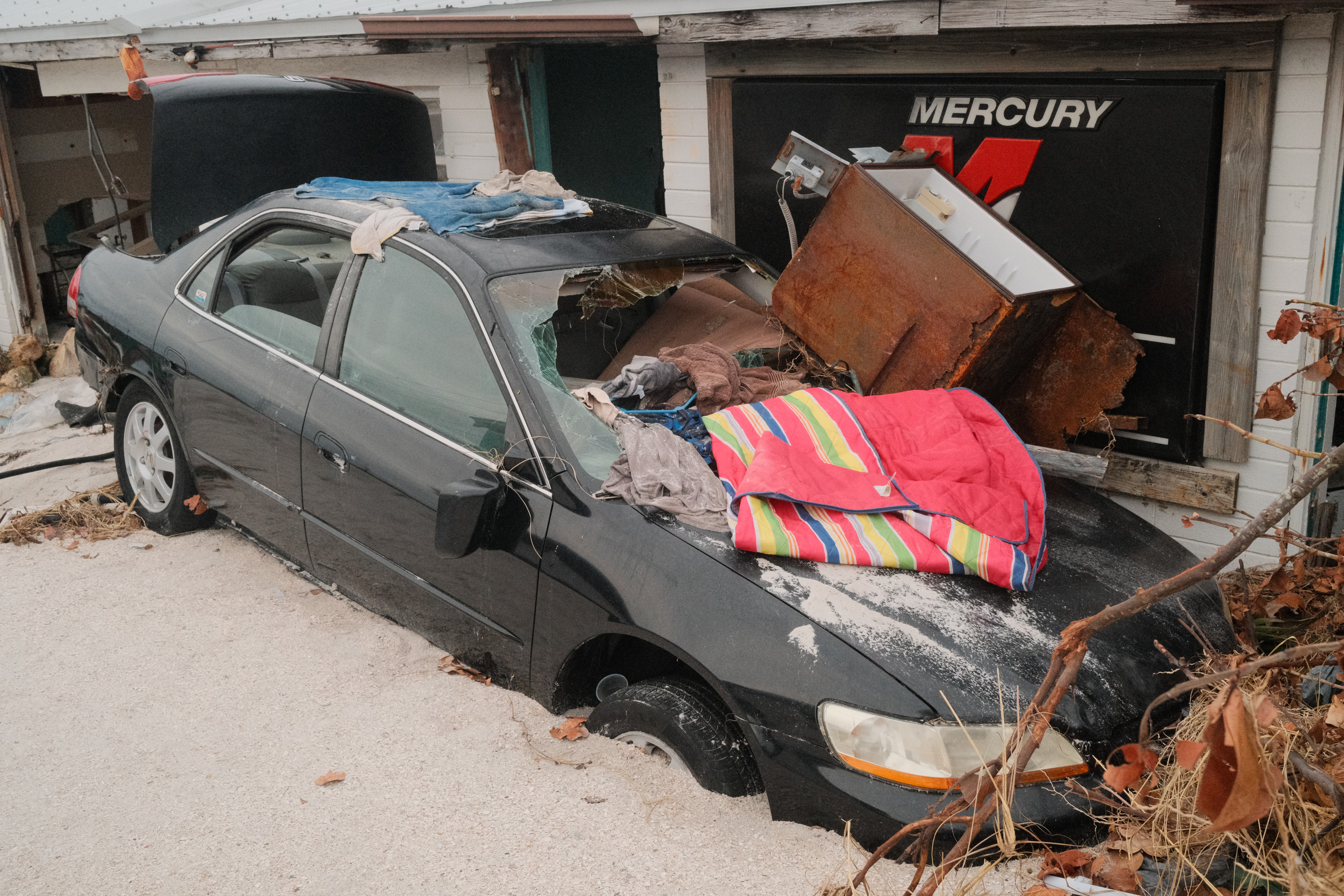
A damaged vehicle stuck in sand swept up by Hurricane Helene ahead of Hurricane Milton’s landfall in Treasure Island, Florida, on October 7, 2024 | Source: Getty Images
Warnings from Officials: The Call to Evacuate
As the hurricane approaches, local authorities are issuing grave warnings to residents in vulnerable areas. Tampa Mayor Jane Castor gave a blunt message, saying, “[If you] stay in one of those evacuation areas, you’re gonna die.”
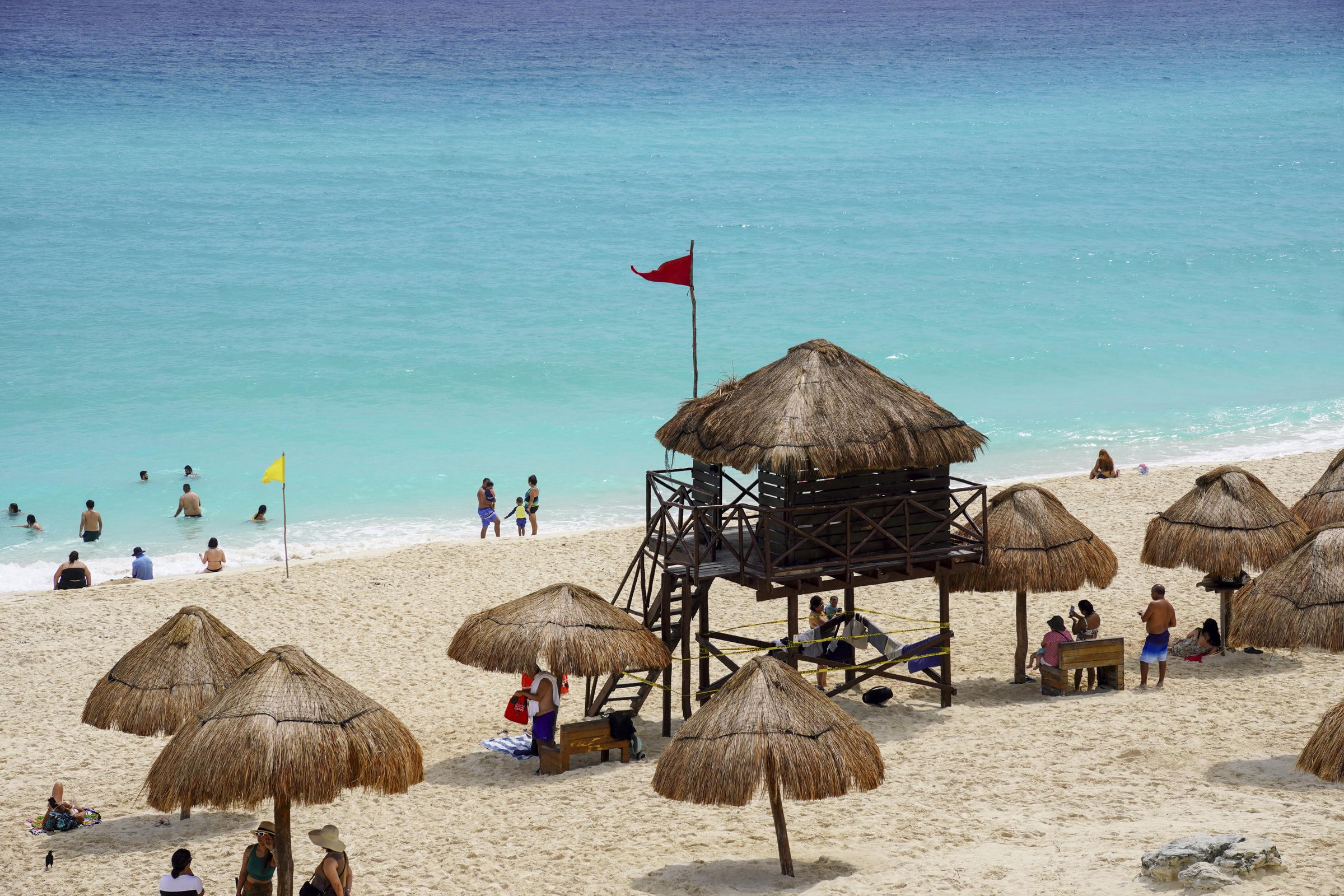
A red warning flag is seen on a beach as tourists enjoy themselves ahead of Hurricane Milton’s arrival, on October 7, 2024 | Source: Getty Images
She stressed that while past storms like Hurricane Helene were damaging, Milton is expected to bring devastation on an entirely different scale. The sense of urgency is echoed by Pinellas County Sheriff Bob Gualtieri, who warned of the largest evacuation in the region since Hurricane Irma in 2017.

“This is going to be bad. Everyone just needs to get out,” he urged. Governor Ron DeSantis also spoke of the dangers. “There are some areas with a lot of debris… if hit by a major hurricane, it’s going to dramatically increase damage,” DeSantis said.
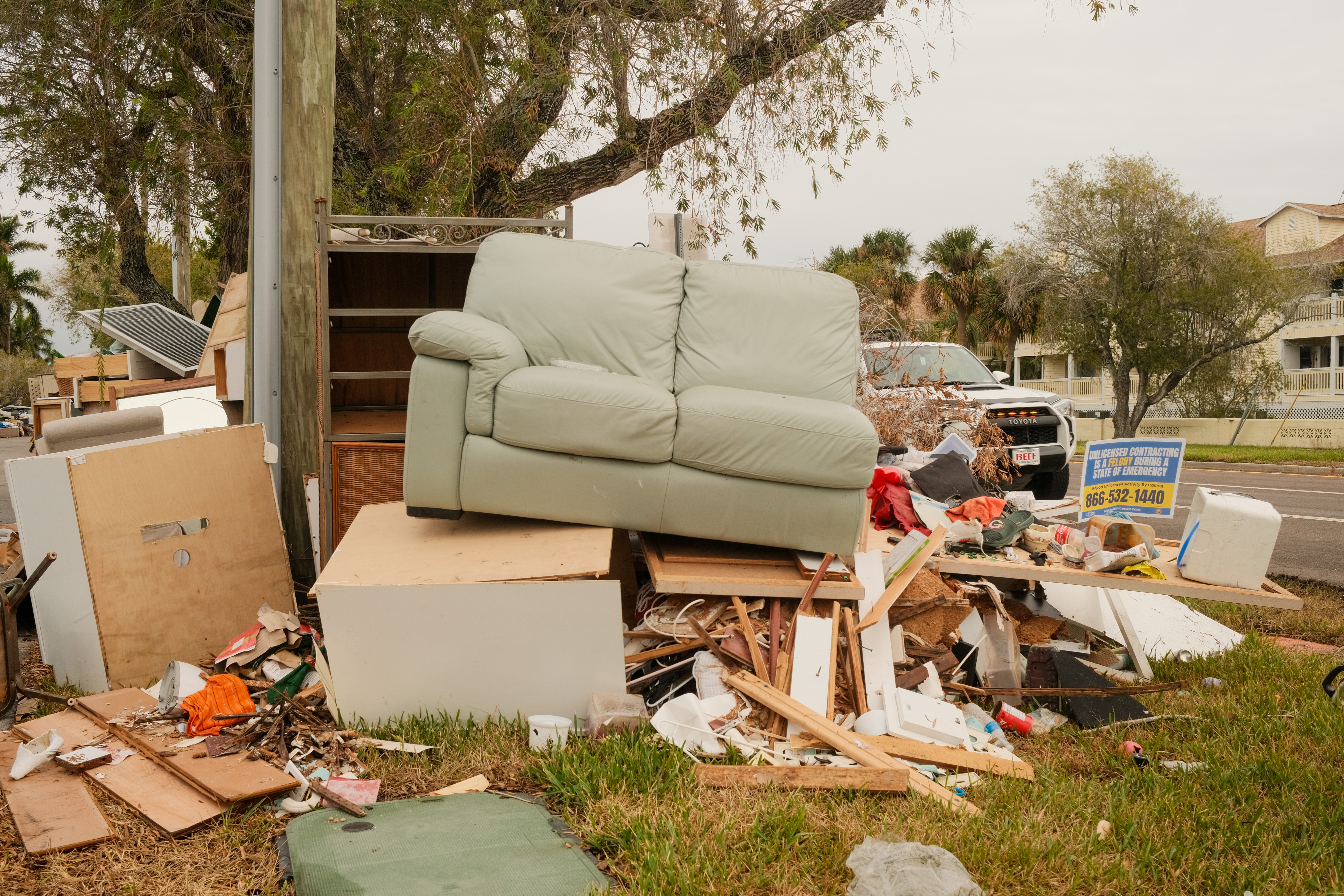
Piles of debris from Hurricane Helene remain uncollected ahead of Hurricane Milton’s expected landfall, on October 7, 2024 | Source: Getty Images
Evacuation orders are in place, with local authorities stressing that those who do not leave will be on their own once the storm hits. Although some residents have stayed behind in past hurricanes, many are now taking these warnings seriously.

Evacuation Efforts in Full Swing
With Hurricane Milton rapidly approaching Florida’s Gulf Coast, evacuation efforts are underway. Local authorities have ordered mandatory evacuations for several coastal communities, urging residents to leave before it’s too late.
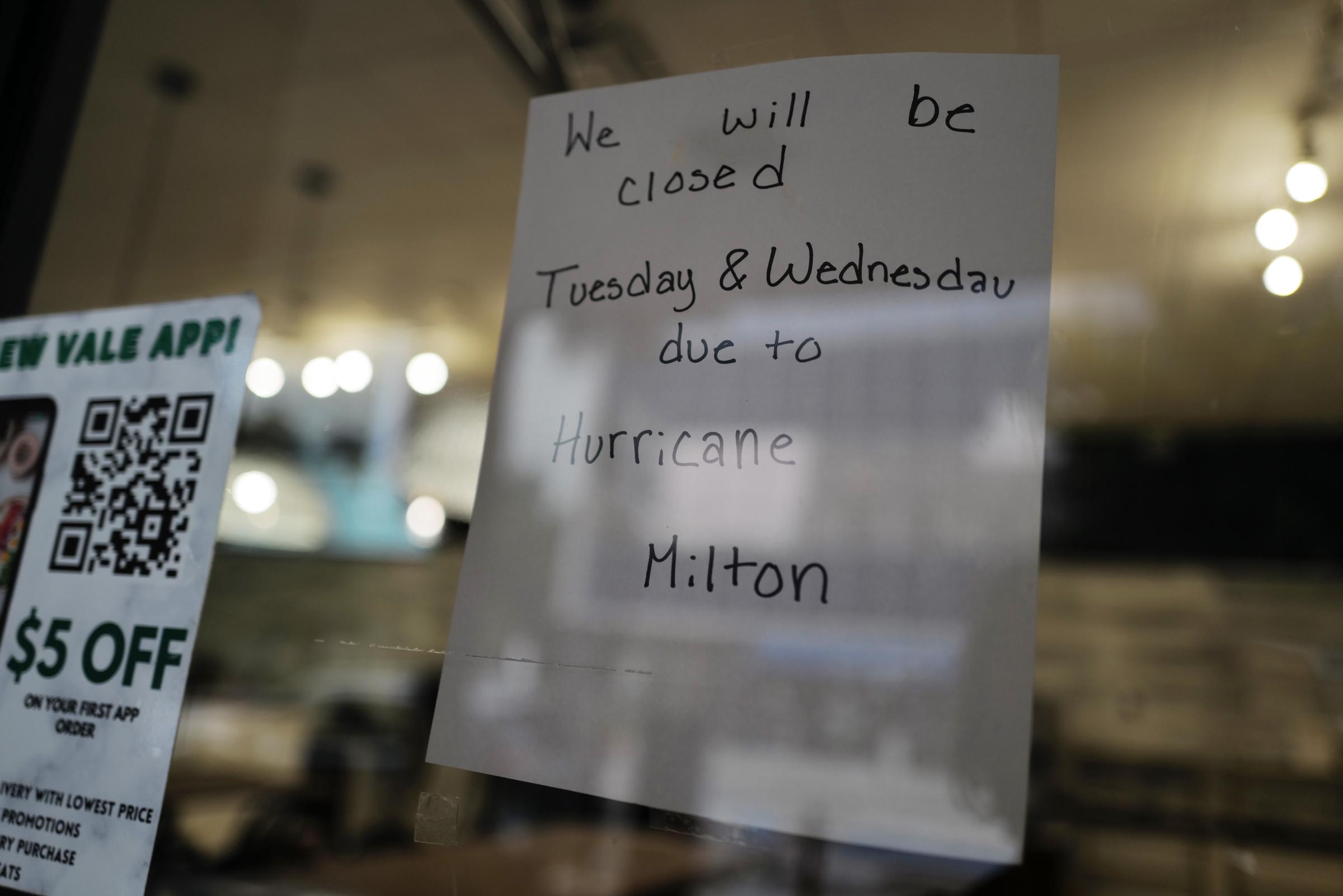
A sign alerts customers that a store will be closed as Hurricane Milton churns, on October 7, 2024 | Source: Getty Images
Traffic has become increasingly heavy on highways as thousands of residents move inland to escape the storm’s path. On Interstate 75, the main route for evacuations, northbound lanes were jammed with vehicles heading toward the Florida Panhandle.

Others sought refuge in areas like Fort Lauderdale and Miami, which are expected to be less affected by the storm. In contrast, southbound lanes were nearly empty. Communities that were hit hard by previous storms are not taking any chances this time.

Piles of debris from Hurricane Helene remain uncollected ahead of Hurricane Milton’s expected landfall, on October 7, 2024 | Source: Getty Images
In Fort Myers Beach, a town devastated by Hurricane Ian just two years ago, streets were deserted as residents packed up and left, leaving behind only a few racing against time to secure their properties.
Those who remember the severe flooding caused by Ian’s 15-foot storm surge know the danger is real and are taking every precaution to avoid repeating past tragedies.

Mapping Out the Evacuation Zones
As Hurricane Milton nears, residents in high-risk areas must know their designated evacuation zones and routes. The Florida Division of Emergency Management has made this process easier with its “Know Your Zone” tool, which helps people determine their zone by simply entering their address.

Workers placing sheets of wood over windows and glass doors to protect them from Hurricane Milton in Cancun, Quintana Roo State, Mexico, on October 7, 2024 | Source: Getty Images
This tool is especially important as evacuation orders continue to roll out for coastal regions along the Gulf Coast. Residents in several counties are strongly advised to check both their evacuation and storm surge zones.
Counties such as Hillsborough, Pinellas, Manatee, and Pasco have issued immediate evacuation orders for areas most vulnerable to the storm surge. Coastal communities in these regions are under mandatory evacuation, and residents are urged to act quickly.

People shop for food at a supermarket ahead of Hurricane Milton in Merida, Yucatan State, Mexico, on October 7, 2024 | Source: Getty Images
Other counties, like Polk and Highlands, do not have mandatory evacuation policies, with emergency management officials recommending in-place sheltering as the primary option during disasters. In contrast, Sarasota, Citrus, and Hernando counties are also under watch, and storm surge zones are being monitored closely for potential evacuations.
Officials stress the importance of not only knowing your evacuation zone but also familiarizing yourself with the nearest shelters and safe routes. Those who remain behind may face the full force of the storm, with emergency services unlikely to be available once conditions become dangerous.

The devastating damages of Hurricane Helene on Anna Maria Island, dated October 6, 2024 | Source: Getty Images
The “Know Your Zone” map offers an easy way for residents to plan their safest route to avoid the worst of Hurricane Milton’s impact. By using this resource and acting quickly, individuals can better protect themselves and their families from the storm’s potential devastation.
